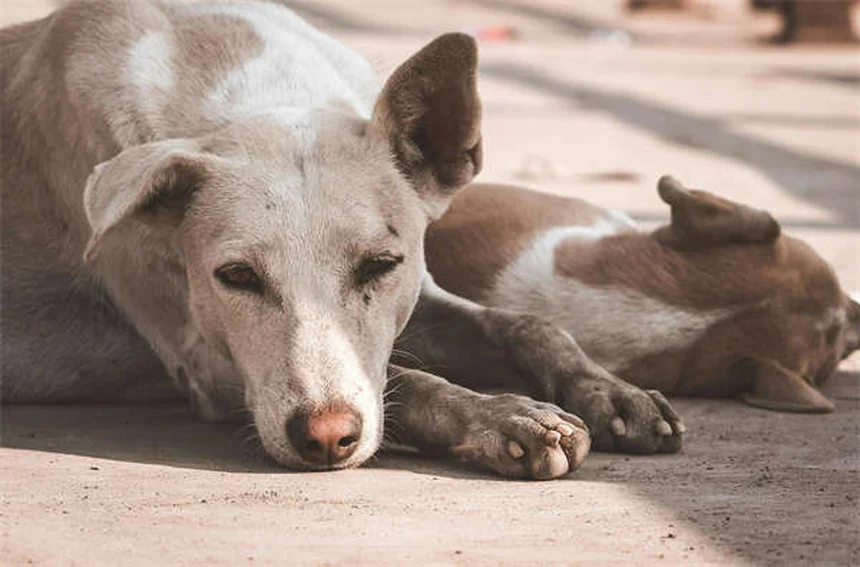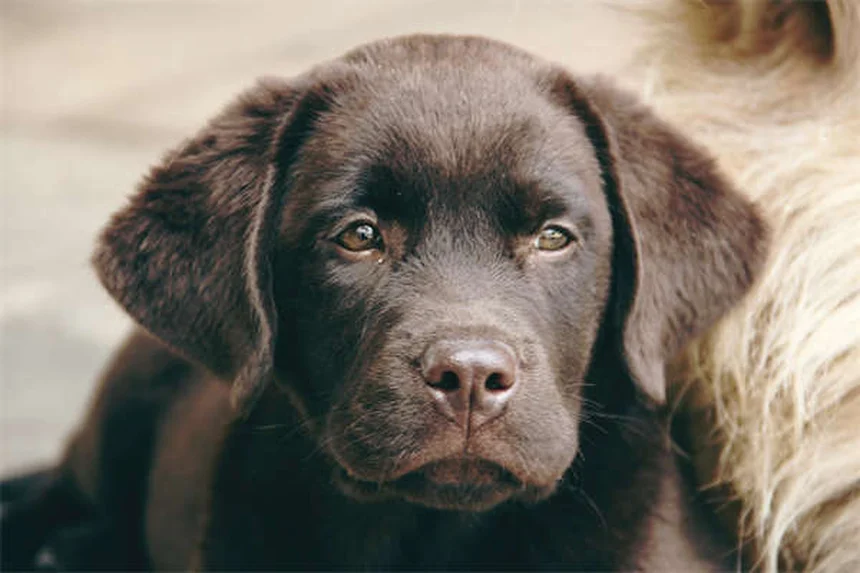Advertisement
What is tracheal collapse in dogs? The answer is: It's when your pup's windpipe flattens, making breathing harder and causing that distinctive goose-honk cough. As a vet tech for over a decade, I've seen hundreds of cases - from mild annoyances to full-blown emergencies. The good news? With proper care, most dogs live happy, normal lives despite this condition.You'll know something's wrong when your dog starts sounding like a toy trumpet, especially during excitement or exercise. While small breeds like Yorkies and Chihuahuas are most at risk, any dog can develop tracheal collapse. The key is catching it early and working closely with your vet to manage symptoms.In this guide, we'll break down everything from that weird cough to treatment options that actually work. I'll share insider tips I've learned from helping countless pet parents navigate this condition. Because let's face it - when Fido can't breathe right, you can't sleep right.
E.g. :How to Pick Up a Rabbit Safely Without Scaring Them
Advertisement
- 1、Understanding Tracheal Collapse in Dogs
- 2、Spotting the Signs: Is My Dog at Risk?
- 3、Getting to the Root: What Causes This Condition?
- 4、Diagnosis: How Vets Crack the Case
- 5、Treatment Options: From Pills to Procedures
- 6、Daily Life: Helping Your Pup Thrive
- 7、Looking Ahead: The Long-Term Picture
- 8、Beyond the Basics: Additional Considerations for Tracheal Collapse
- 9、The Financial Reality of Treatment
- 10、Traveling With a Tracheal Collapse Dog
- 11、When to Consider a Second Opinion
- 12、Quality of Life Considerations
- 13、FAQs
Understanding Tracheal Collapse in Dogs
What Exactly Is Happening to My Dog's Windpipe?
You know that tube connecting your dog's nose to their lungs? That's the trachea - we often call it the windpipe. Picture it like a vacuum cleaner hose with little C-shaped cartilage rings holding it open. Now imagine those rings getting weak or the membrane between them stretching out. That's when trouble starts.
When the trachea collapses, it's like stepping on that vacuum hose - the airway flattens and your pup struggles to get enough air. The classic sign? A dry, goose-like honking cough that'll make you look around for actual geese. While many dogs live happily with mild cases, severe collapses can turn into real emergencies requiring immediate vet care.
How Serious Can This Get?
Let me put it this way - if your dog's gums turn blue or they faint, we're talking code red emergency. But in most cases? Think of it like human asthma - manageable with proper care. The severity ranges from occasional annoying coughs to full-blown breathing crises. Here's a quick comparison:
| Severity Level | Symptoms | Action Needed |
|---|---|---|
| Mild | Occasional goose-honk cough | Monitor, lifestyle changes |
| Moderate | Frequent coughing, exercise intolerance | Vet visit, medications |
| Severe | Blue gums, fainting, extreme distress | Emergency vet immediately |
Spotting the Signs: Is My Dog at Risk?
 Photos provided by pixabay
Photos provided by pixabay
The Telltale Symptoms You Can't Miss
That goose-honk cough isn't the only clue. Watch for these red flags:• Retching like they've got a hairball (but they don't)• Breathing faster than normal or with visible effort• Suddenly becoming the laziest pup on the block
Ever seen your dog get so excited they start coughing? That's textbook tracheal collapse. The triggers read like a dog's perfect day: eating, drinking, playing, getting belly rubs. Ironic, right? The things they love most make the symptoms worse.
Which Dogs Are Most Vulnerable?
While any dog can develop this, some breeds hit the genetic lottery for tracheal issues. The usual suspects? Those adorable tiny dogs you can fit in a purse:
• Yorkies that weigh less than your laptop• Pomeranians fluffier than your pillow• Chihuahuas with attitude bigger than their bodies
But here's something surprising - age isn't always a factor. While middle-aged to senior dogs commonly develop this, I've seen puppies barely out of their milk-teeth phase with collapsing tracheas. Makes you wonder, doesn't it?
Getting to the Root: What Causes This Condition?
The Perfect Storm of Risk Factors
There's no single villain here. It's more like a bad cocktail of:• Weak cartilage (thanks, genetics)• Extra pounds putting pressure on the airway• Environmental irritants like smoke or strong perfumes
Picture this: your chubby Yorkie waddles through cloud of air freshener after recovering from kennel cough. That's the trifecta right there. Recent anesthesia can also play a role - that breathing tube during dental cleanings sometimes irritates things further.
 Photos provided by pixabay
Photos provided by pixabay
The Telltale Symptoms You Can't Miss
Here's where it gets complicated. Many dogs with tracheal collapse have other conditions piggybacking on the problem. Heart disease? Check. Dental issues? You bet. It's like their little bodies decided to collect health issues like trading cards.
Why does this matter? Because treating just the trachea without addressing these other problems is like fixing one leak in a boat with five holes. Your vet needs to see the whole picture.
Diagnosis: How Vets Crack the Case
The Detective Work Begins
Your vet will play Sherlock Holmes with your dog's medical history. That video you took of Fido's coughing fit at 3 AM? Gold. They might even gently press on the throat to trigger the cough - sounds mean, but it's like a doctor tapping your knee with that little hammer.
X-rays are usually step one, but here's the catch - the trachea doesn't always cooperate. It might decide to stay open just for the photo op. That's when specialists bring out the big guns: fluoroscopy (fancy moving x-rays) or bronchoscopy (a tiny camera down the airway).
The Full Workup: What to Expect
Prepare for what I call the "vet spa package":• Blood tests checking all systems• Urine analysis because why not• Heart ultrasound to rule out cardiac issues
It might seem like overkill, but remember - we're dealing with an airway here. You wouldn't want your pilot ignoring half the plane's systems before takeoff, right?
Treatment Options: From Pills to Procedures
 Photos provided by pixabay
Photos provided by pixabay
The Telltale Symptoms You Can't Miss
About 70% of dogs respond well to meds. The arsenal includes:• Cough suppressants (breaking the cough-irritation cycle)• Anti-inflammatories (oral or inhaled)• Bronchodilators (opening those small airways)• Sedatives (for the overexcited pups)
Think of it like maintaining a classic car - regular tune-ups keep it running smoothly. These medications often become lifelong companions, but many dogs adapt beautifully.
When Surgery Enters the Chat
For severe cases, vets might suggest:• External rings (like little braces for the trachea)• Internal stents (a scaffold holding the airway open)
But here's the reality check - these procedures aren't cure-alls. Complications happen, and the trachea continues aging. It's more about improving quality of life than finding a magic bullet.
Daily Life: Helping Your Pup Thrive
Lifestyle Tweaks That Make a Difference
Three words: harness not collar. That pressure on the neck from a collar? Big no-no. Other game-changers:• Weight management (even 1 pound matters for tiny dogs)• Air purifiers reducing irritants• Avoiding summer midday walks (heat/humidity = trouble)
Ever notice how dogs mirror our habits? If you're calm, they're calmer. That's huge for tracheal issues. Maybe it's time to adopt that zen lifestyle you've been Instagram-pinning about.
The Exercise Balancing Act
Here's the paradox - they need exercise to stay slim, but overexertion triggers coughing. The solution? Short, frequent walks instead of marathon sessions. Think "stroll" not "sprint." And always watch for that telltale honk - nature's built-in warning system.
Remember, every dog is unique. What works for your neighbor's Pomeranian might not suit your Chihuahua. That's why working closely with your vet is crucial - it's about finding your pup's personal sweet spot.
Looking Ahead: The Long-Term Picture
Monitoring and Adjusting Over Time
This isn't a "set it and forget it" condition. Regular vet check-ups help track progression. Keep a symptom diary - note coughing episodes, triggers, and any changes. It's like being a scientist observing the most adorable research subject ever.
New symptoms? Don't panic, but don't ignore them either. Many dogs live happily for years with proper management. The key is staying observant and proactive.
When to Sound the Alarm
Certain changes demand immediate attention:• Increased coughing frequency• New breathing difficulties• Behavior changes like withdrawal
Trust your gut - you know your dog better than anyone. If something feels off, it probably is. Better an unnecessary vet visit than a missed warning sign.
Beyond the Basics: Additional Considerations for Tracheal Collapse
The Emotional Toll on Pet Parents
Let's talk about something we don't discuss enough - how stressful this condition can be for you. Hearing your pup cough like they're choking on invisible food is terrifying. I've seen owners develop what I call "cough radar" - waking at the slightest sound from their dog.
Here's the thing - your anxiety affects your dog too. They pick up on your stress, which can actually worsen their symptoms. It's a vicious cycle. That's why I always recommend joining support groups (online or local) where you can share experiences and coping strategies with others going through the same thing.
Alternative Therapies Worth Exploring
While traditional medicine forms the backbone of treatment, some complementary approaches show promise:
• Acupuncture - Several veterinary schools now offer this, with some dogs showing reduced coughing episodes
• Honey therapy - A teaspoon of raw local honey can soothe irritated throats (check with your vet first)
• CBD products - Emerging research suggests potential benefits for reducing inflammation and anxiety
But buyer beware - the supplement market is the Wild West. Always consult your vet before trying anything new, and look for products with third-party testing. Remember, what works for humans might not be safe for dogs.
The Financial Reality of Treatment
Budgeting for Your Dog's Care
Let's get real - managing tracheal collapse isn't cheap. Between vet visits, medications, and potential emergencies, costs add up quickly. Here's a rough breakdown of what you might expect:
| Expense Type | Low End | High End |
|---|---|---|
| Initial Diagnosis | $300 (basic x-rays) | $1,500 (specialist imaging) |
| Monthly Medications | $40 | $200 |
| Emergency Visit | $500 | $3,000+ |
| Surgical Options | $3,000 | $8,000 |
Does this mean you need to take out a second mortgage? Not necessarily. Many vets offer payment plans, and pet insurance can be a lifesaver (just make sure your policy covers chronic conditions). Some pharmaceutical companies even have assistance programs for long-term medications.
Prevention: Can You Stop It Before It Starts?
While you can't change genetics, there are proactive steps to potentially reduce risk or severity:
• Early weight management - Keeping puppies at ideal weight from the start
• Environmental control - Avoiding secondhand smoke and strong chemical odors
• Proper collar use - Switching to harnesses early, even before symptoms appear
Think of it like building good credit - the habits you establish early pay dividends later. And while we're on prevention, let me bust a myth: no, using a harness instead of a collar won't make your dog pull more. That's 100% training-related.
Traveling With a Tracheal Collapse Dog
Road Trip Readiness
Planning a vacation with your special needs pup? Here's your checklist:
• Pre-trip vet visit - Get any necessary medications refilled
• Climate considerations - Hot/humid or extremely cold destinations may worsen symptoms
• Emergency vet locations - Research clinics along your route and at your destination
I always recommend doing a test run - take a short overnight trip first to see how your dog handles travel. And please, please don't put them in cargo if flying - the stress and air pressure changes could be dangerous.
The Anxiety Factor in New Environments
Ever notice how your dog coughs more at the vet's office? New places amp up their stress levels. Here's how to help:
• Bring familiar items - their bed, toys, even your unwashed t-shirt with your scent
• Request ground floor rooms when staying in hotels
• Maintain routines - feed and walk at their usual times
It's amazing how much difference these small adjustments make. I've seen dogs who were coughing nonstop in new places completely settle down after their owners implemented these strategies.
When to Consider a Second Opinion
Red Flags in Your Vet Relationship
Most vets are wonderful, but if you notice any of these, it might be time for a consult elsewhere:
• Dismissing your concerns without proper testing
• Pushing expensive treatments without discussing alternatives
• Failing to explain things in terms you understand
Remember - you're part of the healthcare team too. A good vet will welcome your questions and involve you in decision-making. Specialists like veterinary internists can offer fresh perspectives when cases are complicated.
The Power of Veterinary Teaching Hospitals
Did you know many universities with vet schools offer affordable specialty care? Here's why they're awesome:
• Access to cutting-edge treatments and clinical trials
• Teams of specialists collaborating on complex cases
• Often more cost-effective than private specialty clinics
The wait times can be longer, but for tough cases, it's worth the wait. Many have financial assistance programs too. Just be prepared for students observing - your dog might become a teaching case!
Quality of Life Considerations
Recognizing When Treatment Isn't Working
This is the hardest part of pet ownership. If your dog shows these signs despite treatment, have an honest talk with your vet:
• Constant distress or panic episodes
• Inability to sleep comfortably
• Loss of interest in food or interaction
But here's the hopeful part - with today's treatment options, most dogs never reach this point. The key is early intervention and consistent care.
Celebrating the Good Days
On tough days, remember this - dogs live in the moment. They don't dwell on yesterday's cough or worry about tomorrow's vet visit. When they're feeling good, they're 100% present - chasing squirrels, begging for treats, living their best life.
Your job? To be present with them. Notice when they're comfortable and happy, and let those moments fill your heart. After all, isn't that why we have dogs in the first place?
E.g. :Tracheal Collapse in Dogs | VCA Canada Animal Hospitals
FAQs
Q: What does a dog's cough sound like with tracheal collapse?
A: That "goose honk" cough is unmistakable once you've heard it. Imagine squeezing a dog toy repeatedly - that dry, harsh sound is your pup's airway collapsing. I tell clients it often starts during excitement (like when you come home) or after drinking water. The cough usually doesn't produce mucus, which helps distinguish it from kennel cough. Pro tip: Record the cough for your vet - timing matters because the trachea doesn't always collapse on command during exams.
Q: Can tracheal collapse kill my dog?
A: While severe cases can be life-threatening, most dogs adapt well with treatment. The real danger comes when the airway completely flattens, cutting off oxygen. Watch for blue-tinged gums or fainting - these are 911-level emergencies. That said, I've cared for senior dogs with tracheal collapse who lived to 15+ with proper management. The key is addressing weight issues, avoiding irritants, and sticking to prescribed medications.
Q: What's the best harness for dogs with tracheal collapse?
A: After testing dozens, I recommend front-clip harnesses that distribute pressure across the chest instead of the throat. The Puppia Soft Vest and Ruffwear Front Range are clinic favorites. Whatever you choose, ensure it has: 1) Padded chest coverage 2) Adjustable straps 3) No neck pressure. Bonus tip: Measure your dog's girth while standing - harnesses often fit differently than collars.
Q: Are there home remedies for mild tracheal collapse?
A: While nothing replaces vet care, these supportive measures help: 1) Humidifiers moisten dry airways 2) Elevated feeders reduce neck strain during meals 3) Honey (1/2 tsp) can soothe occasional coughs 4) Air purifiers remove irritants. Critical note: Never use human cough syrup - some ingredients are toxic to dogs. Always check with your vet before trying home treatments.
Q: How much does tracheal collapse surgery cost?
A: Brace yourself - stents or rings typically run $3,000-$7,000 depending on location and specialist fees. While pet insurance may cover part, most policies consider this a pre-existing condition if symptoms appeared before enrollment. In my experience, reserve surgery for severe cases - many dogs improve significantly with medication and lifestyle changes alone.







